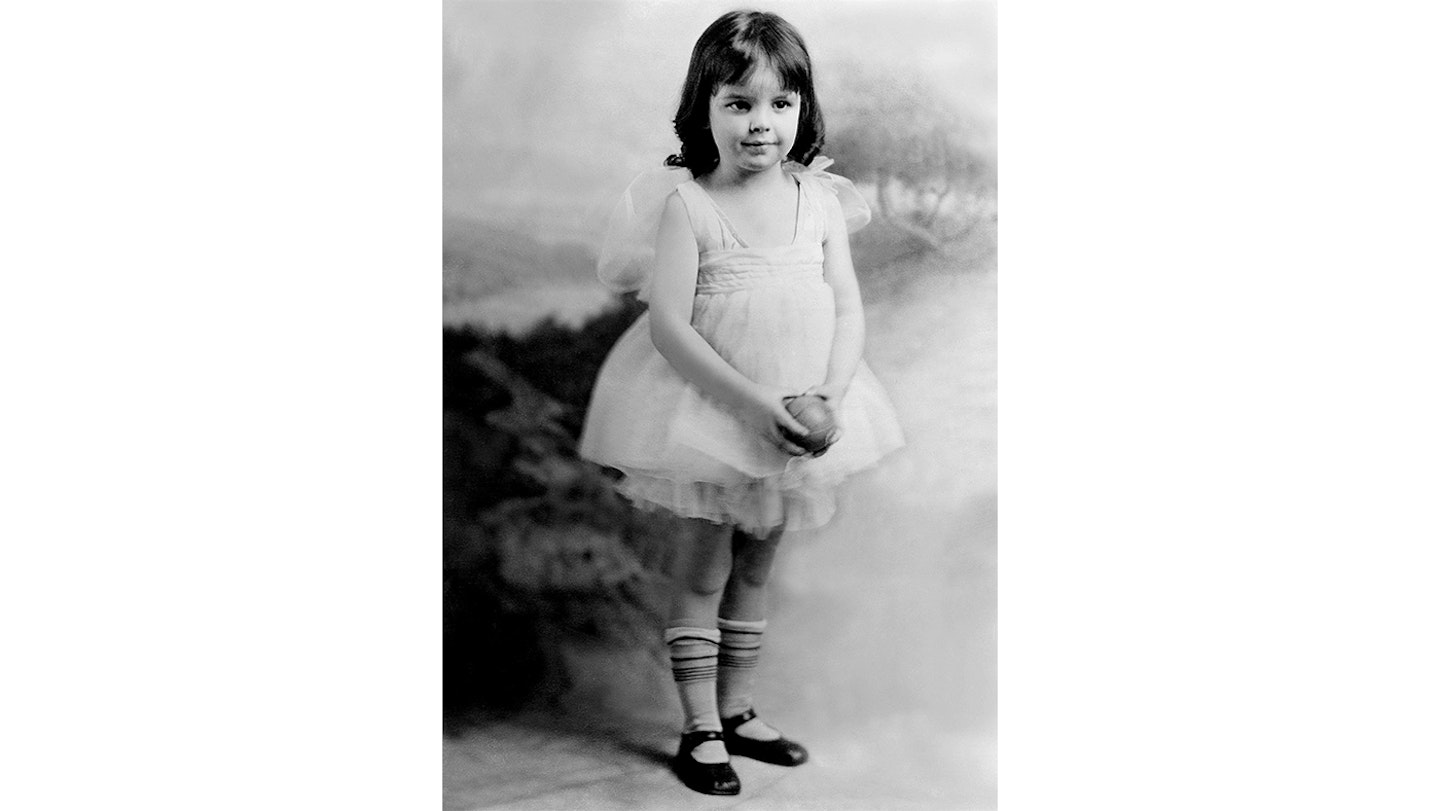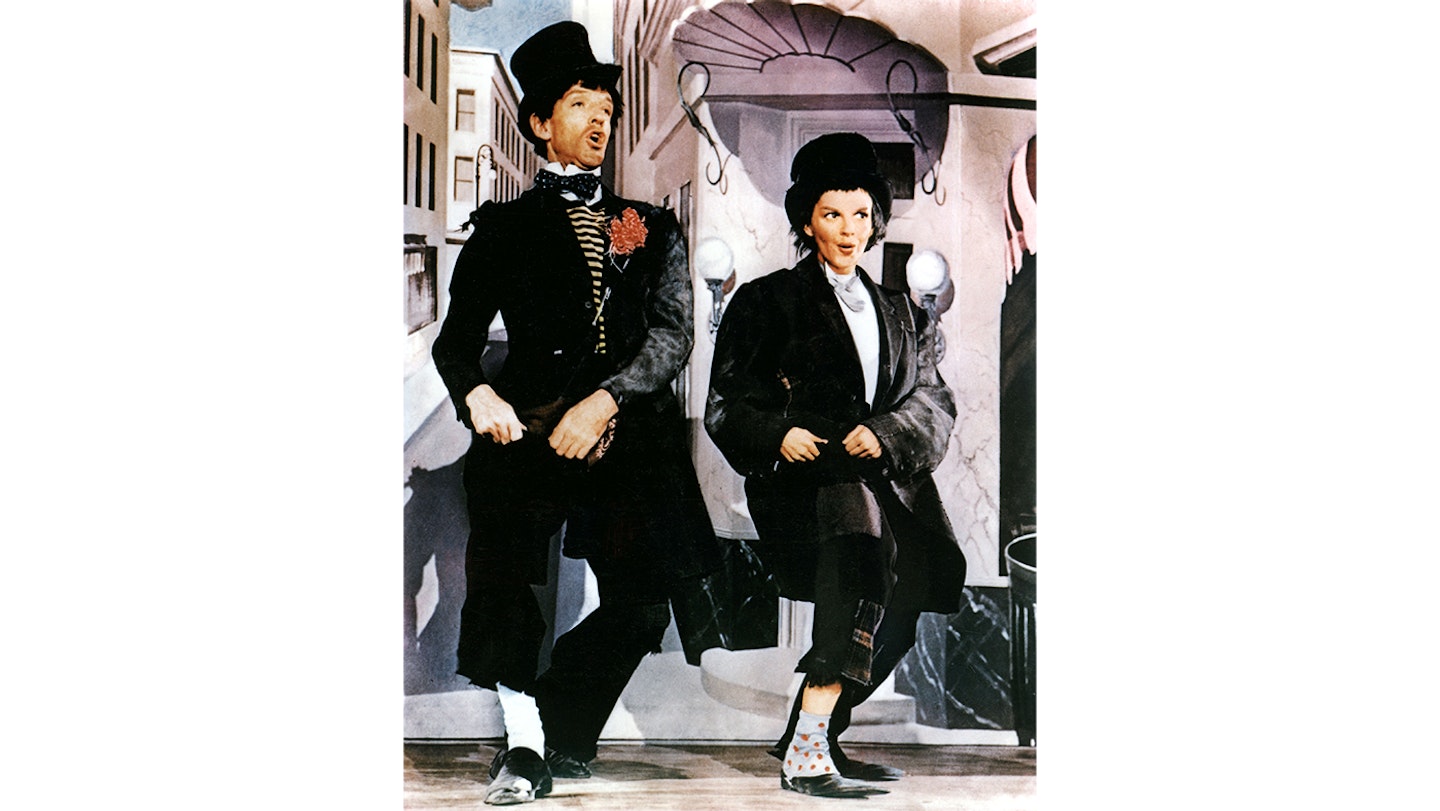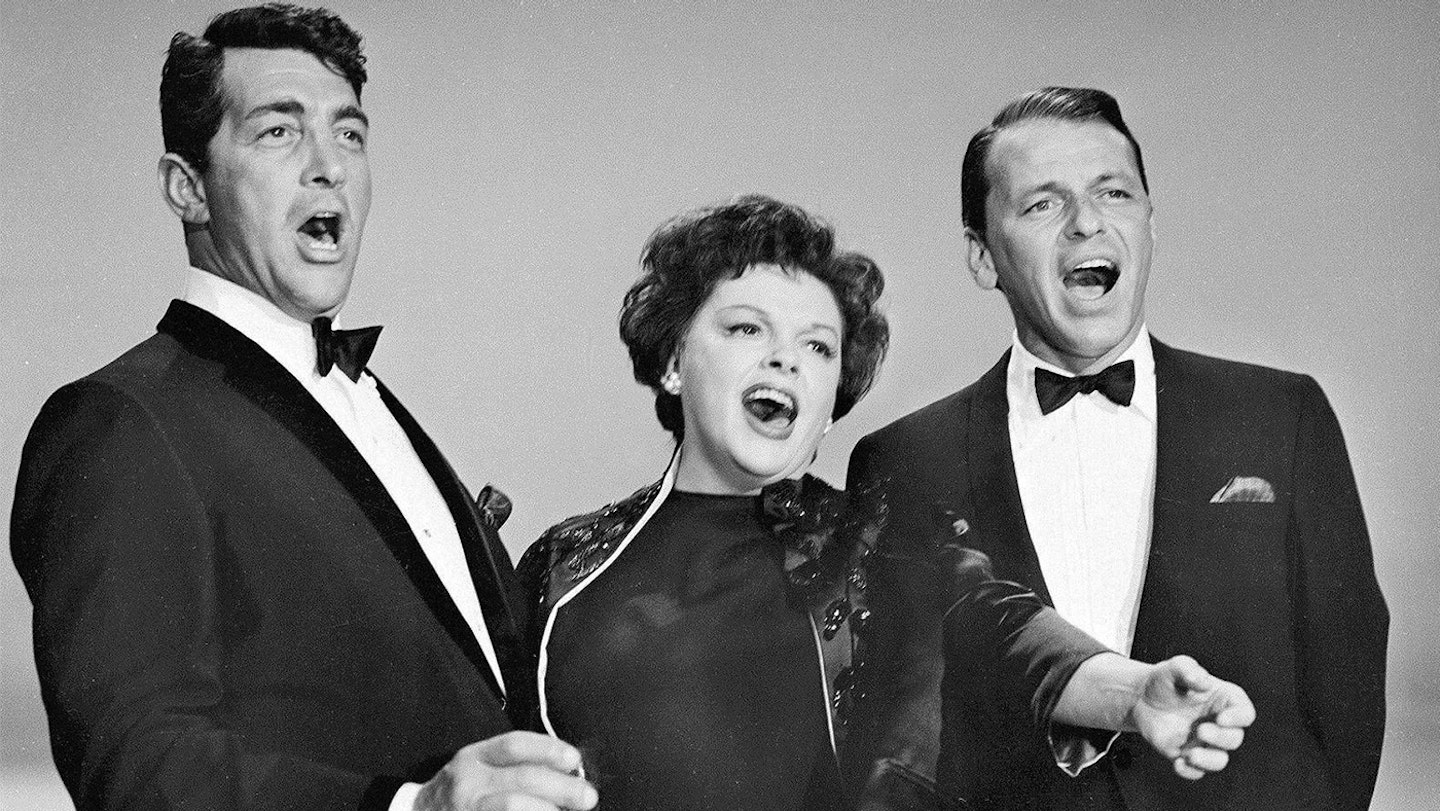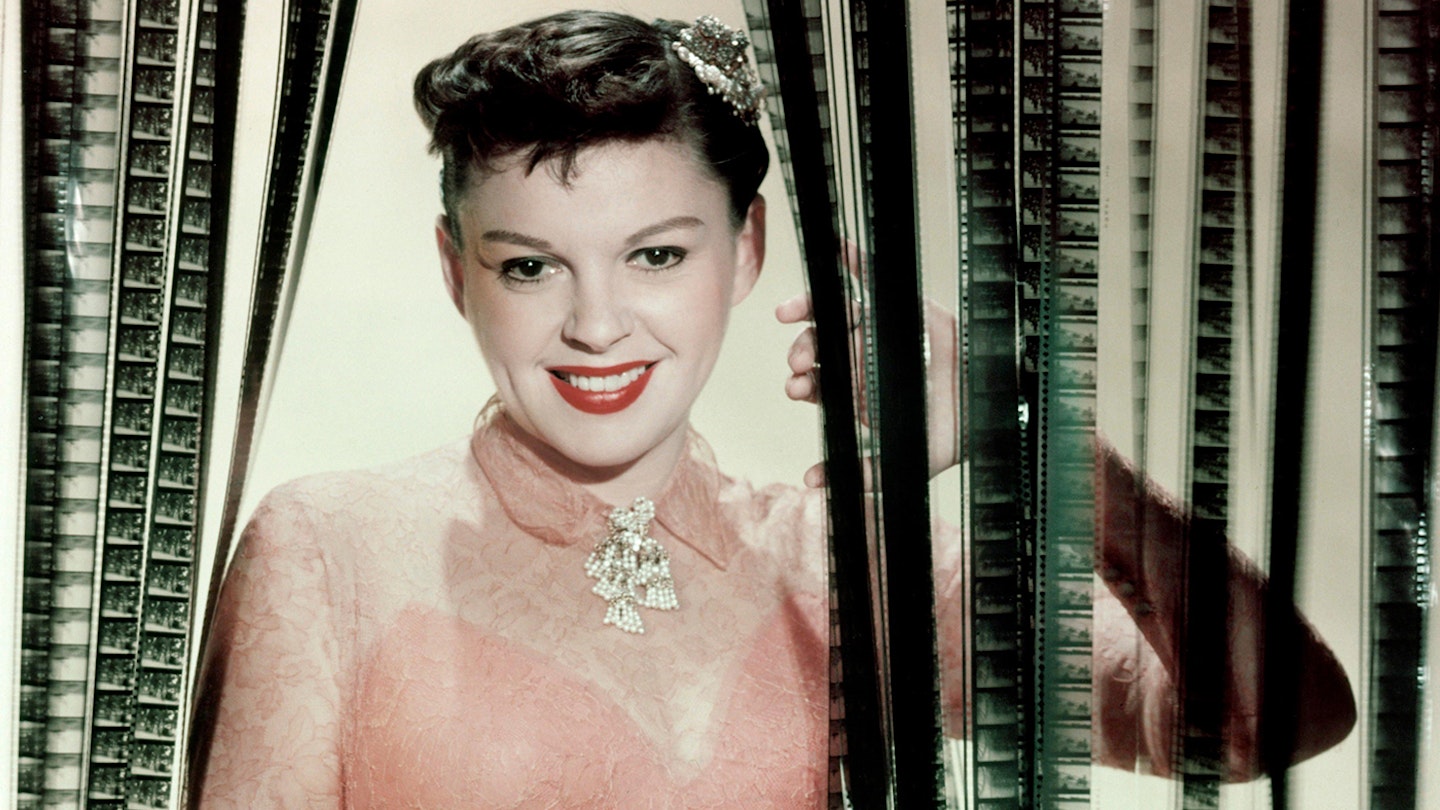"I was born at the age of 12 on a Metro-Goldwyn-Mayer lot," declared the former Frances Gumm, who was in fact born on June 10, 1922 in Minnesota.
The child star first performed on stage aged two, as part of her family’s vaudeville acts, and spent her early years travelling around America, managed by her mother.

Her life was transformed when, in 1935, she signed an MGM contract – she also sadly lost her beloved father to meningitis that same year. The studio would become her home for the next 15 years, but at a cost. Judy made ten films with fellow child star Mickey Rooney, including classics such as Babes in Arms and Love Finds Andy Hardy. The pair would become firm friends, but would suffer a punishing workload with promotional tours filling any time between films.
MGM controlled the young Judy’s life - giving her various medication for her tiredness, insomnia and to help her
lose weight, as well as heavily restricting her diet. When asked what she’d missed most as a teenager, she replied, “eating”.

It was Judy’s seventh movie, The Wizard of Oz that would seal her stardom, with her performance of Over the Rainbow earning her a special Juvenile Oscar.
On a personal note, the film inspired her throughout her life, particularly in tough times: “I believe in the idea of the rainbow. And I’ve spent my entire life trying to get over it.”
During her time at MGM, Judy starred in some of the all-time great musicals, including Easter Parade (1948) and Meet Me In Saint Louis (1944). Her last was Summer Stock, with Gene Kelly, where she sang the showstopper Get Happy – ironic considering the strain she was under owing to addiction, illness and her failing second marriage to Vincente Minnelli.

After parting ways with MGM, success on stage followed, as did her third marriage, to Sid Luft, and Judy staged a big film comeback in A Star is Born (1954). Such was the strength of her performance that it’s still considered controversial that she lost out on a Best Oscar award (to Grace Kelly).
A third child was born soon after – Judy described her children, Liza Minnelli, Lorna and Joe Luft as, “the gold at the end of the rainbow”.
She also sought solace in her friends – as part of the original Rat Pack, Judy enjoyed hanging out with buddies Frank Sinatra, Humphrey Bogart, Dean Martin, Sammy Davis Jr and Lauren Bacall.

Work on stage and film continued, with highs such as her Oscar-nominated performance in Judgment at Nuremberg, her solo concerts at the London Palladium, An Evening with Judy Garland, plus her concerts with daughter Liza. Her final and only British, movie I Could Go On Singing was released in 1963.
Although Judy was never able to escape her demons, she lived a full life and was surrounded by friends who admired her spirit, soulful voice and sense of humour. When she died aged 47, in London, on June 22, 1969, she left a monumental legacy. In her words: “I’m a woman who wants to reach out and take 40 million people in her arms.”
